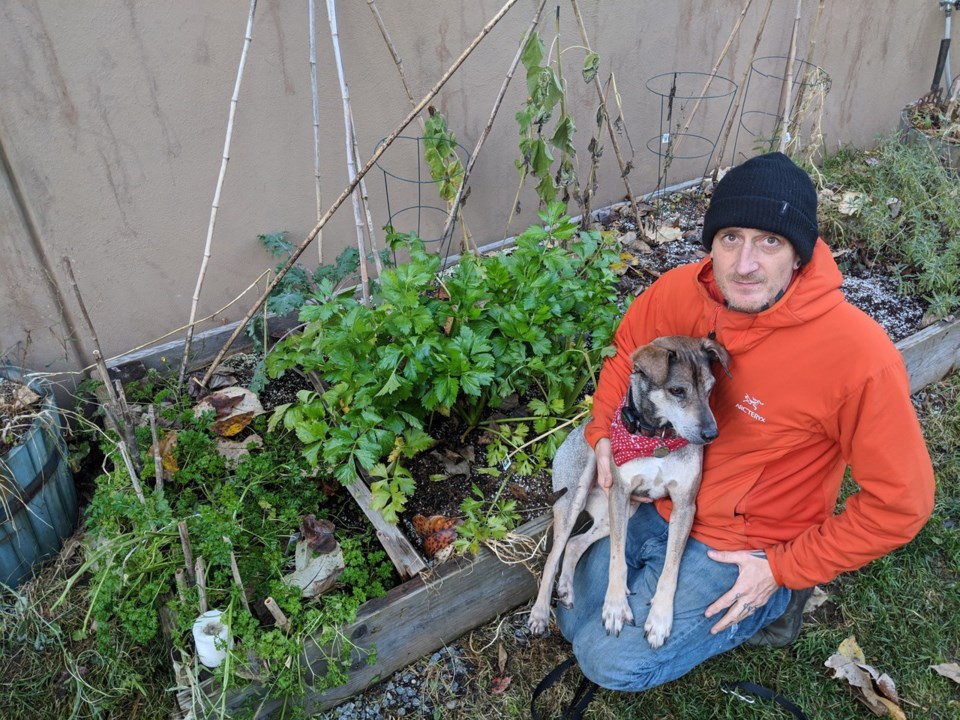Yay! Whistler Blackcomb opens today—though low snow levels are a real challenge. That along with Tourism Whistler's "winter fairytale #OnlyInWhistler" campaign beautifully underscores that if ever there was a way to get our climate under control, at least a big chunk of the action would come from the smart, outdoorsy people living in mountain fairy lands like here.
What would Whistler do without snow?
For starters, check out a posting about California ski resorts dreaming of snow on ye olde Pique blog of days gone by ("California dreaming of snow," Jan. 30, 2012). It's from Pique founder Bob Barnett, and if the whole set-up wasn't so twisted you might laugh. You still might.
Conditions were so rotten that winter in the Sunshine State—that same state now under wildfire siege—that local ski resorts had partnered with Shell for a promo of the strangest order. Buying 10 gallons of gas qualified you for—guess what?—a free ski pass at one of four snow-starved California mountain resorts!
Sure, Whistler Blackcomb management has been concerned about climate change to some degree for years. Ask Arthur De Jong. (BTW, nice to see him bringing his ideas to the new council.) I'm not sure, though, how much has been actually achieved.
But when it comes to you and me, there's something we can do, right now, starting with the next thing you eat after reading this article. Just cut the meat to beat the heat, and I don't mean slicing it. Yes, folks, it's that easy, and there are 1,001 ways to do it, especially in a savvy place like Whistler.
According to a paper published in Science, the nicest thing we can do for every living thing on this planet—including ourselves—is switch from an animal-based diet to a plant-based one.
The study considered five environmental indicators, 38,000-plus farms and 40 different agricultural products from around the world. The conclusion, according to George Monbiot reporting in The Guardian, is "that while some kinds of meat and dairy production are more damaging than others, all are more harmful to the living world than growing plant protein. (The study) shows that animal farming takes up 83% of the world's agricultural land, but delivers only 18% of our calories. A plant-based diet cuts the use of land by 76% and halves the greenhouse gases and other pollution that are caused by food production."
Food production pollution cut by half! Land use by three quarters! But for me, our changing climate is the thing I'm tackling each time I decide to delete meat and choose peanut butter or tofu instead.
Climate change is the driver, sometimes obvious, sometimes not, behind so many tragedies, including the migrant caravans. For one, 70 per cent of Central America's coffee plants have been ravaged by leaf rust, which spreads when the nights stay warm. See my Oct. 25 column and Bill McKibben's excellent article in The New Yorker for more examples. Either way, we have maybe a decade to get it under control and cutting the meat helps.
It doesn't mean you have to go full-on vegetarian or vegan, or do it instantly. And it doesn't mean doing it for enviro reasons alone. There are so many points of entry—the low costs, the ease—I bet you can find one right for you.
For instance, Dave Petko, Whistler tattoo artist extraordinaire and owner of Black Ohm Tattoos, didn't stop eating meat to be nice to the planet. He stopped to be nice to animals.
"I kind of stopped eating meat when I left home, probably in '94. I like animals and I didn't want to eat them," says Dave. "I grew up eating meat and I never really liked it. I didn't like the gristle, I didn't like fat, didn't like the veins."
Dave also did some research after the fact and learned about those land use issues.
"There are enough forests on the planet being clear cut to raise beef," he says. "If you go on Google Earth and look at South America and the Amazon, there is so much forest clear cut you can see the cut blocks. It's really shocking!" It is. Greenpeace reports that 80 per cent of the deforestation in the Brazilian Amazon alone is due to cattle ranching.
After first going meat-free, Dave has since added a bit back in. A few times a month, he enjoys a little meat from an ethical, local supplier, like Pemberton Meadows Natural Beef, and there's nothing wrong with that.
In the meantime, you have lots of plant-based options at home and on the go, especially at Whistler. Nicolette and Pierre Richer's all-vegan, organic, simply delicious offerings at their Green Moustache cafés have caught on like wildfire, pardon the expression, with locations now opening from Port Moody to Edmonton. Naked Sprout Juice Bar Café is also a great local choice. Nesters and Olives Community Market have great veg offerings. Plus tons of Whistler eateries, from Creekbread to Caramba Restaurant, are very veg friendly.
My yummiest discovery lately is the unbelievable Beyond Meat burger at A&W. Made from mung beans, beets, pomegranates and more, it really is beyond meat. But you'll have to go to Squamish for one.
The thing is, really, there's no excuse for not cutting at least some meat from your diet. Options for plant-based eating today are so delicious and available you pretty much trip over them. Remember, our closest living relatives, bonobo chimps, are omnivorous, like us. Plants make up more than 90 per cent of their diet, and look how happy they are.
Glenda Bartosh is an award-winning journalist who wants Whistler to do better to preserve winter.




